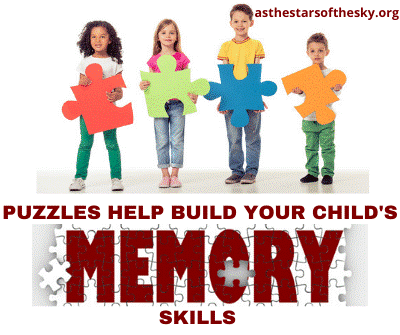Are you looking for fun and educational gifts for children? Some of the best gifts are puzzles, and they come in a wide array of styles. Why puzzles? The most important reason is that they help build memory skills but there are many other reasons which are extremely beneficial for your children.
There are at least 5 reasons for the benefit of puzzles:
1. They help develop memory skills. Children have to remember the shapes and sizes of each piece as well as where they fit in the big picture of the puzzle itself. If one piece does not fit, they must remember that piece later and where it may fit.
2. They teach children problem-solving skills. As children work on solving a puzzle, they are thinking of different ways to put the pieces together. The pieces must fit in designated ways and there are no shortcuts.
3. They teach patience and concentration. Without them, your children will never finish a puzzle. Encourage them to take their time and work on one part of the puzzle before moving on to another part. With patience, they will work through the challenges. Have a designated area for them to work on completing the puzzle and if they have to stop and return, it will be there for them to finish. Also, encourage them to finish it so they learn the importance of completing a task.
4. They give a fun break from digital devices. Children need this regularly as they spend too much time on these devices.
5. For younger children, the aid in developing hand-eye coordination and many motor skills.
Consider having a variety of puzzles available. There are regular jigsaw puzzles as well as Leggos, crossword puzzles, and many more. My sons loved playing with their Leggos sets, building all sorts of things. As always, please make sure to have age-appropriate puzzles available for your children. If a puzzle is too hard or too easy, your child will not want to work with it.


